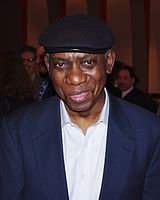books
Books like Dien Cai Dau
Dien Cai Dau
Most days, I sit in a Center for Writing, reviewing papers for college students, and clarifying the proper formatting and style required by the Modern Language Association (MLA), as relates to scholastic writing. As I notice varying writing styles, I suggest books for students to read, based on their style. So imagine my surprise when a student comes in and suggests this book for me to read. You have to read this, he said. I nodded and shrugged it off mentally, just like you do when you get a book recommendation from the person on the train who has no idea what types of books you normally read. I should have known better, because students sense everything and if they're always interacting with you, they know you more than you think they do. A few seconds later, I glance over at him and I see the hurt in his eyes. It is then that I realize that to him, this book is survival. This was the week of the Ferguson incident and it was a heartrending time for most. I saw my students come in with heavy hearts, and I heard the tears in their voices as they spoke to me in whispers, as if I was the only person they felt comfortable enough to share their pain with, as if I was the only one who could relate. Maybe I was. One by one, they unburdened themselves. And I listened.I never thought I would like poetry, until I read this man's stuff, my student said. And then I read his [the student's] annotation on the book. I went through his paper line by line, like I always do, looking for grammatical errors and MLA stylistic flaws. I soon forgot about that because I was hooked. It was as if tears bled through the page and formed words; like the formation heartstrings would make if they were placed on paper and given a voice. It was clear, he had found his voice through this book, and as I looked up to tell him this, tears were in his eyes as he said quietly, Please, you have to read it. I needed no further convincing.Dien Cau Dau. Crazy, is how the Vietnamese referred to the American soldiers in Vietnam. This chapbook is Yusef Komunyakaa's reflections while in Vietnam during the war. I've seen attempts at war poems and I've simply flipped through them and put them away, so I tell you, I've never seen anything like this collection. If there ever was an example of a manuscript on the poetics of war, this is it. It is lyrical simplicity whose melancholy is hypnotizing: Something deeper than sadness/litters the alleys like the insides/kicked out of pillows.When I read poetry, I'm usually interested in staccato and syntax, and I dive in for the music of it. Here, there were all of these things, plus imagery that stuns and captivates. Komunyakaa, a Louisiana native, won the Pulitzer Prize for his Neon Vernacular: New and Selected Poems, and now I can't wait to own that collection. Here, he strings together words simply and stunningly:Her perfume still crawled/ my brain like a fire moth.I enjoyed the stylistic stupor of "Facing It;" I was almost in tears at the personification of PTSD in "Losses," the quiet profundity of "Toys in a Field," shocked me; I was moved by the ode to Dr. King in "Report from the Skull's Diorama," and entranced by "Short-timer's Calendar," and I found myself fascinated by how my students all seemed to be drawn to the race discrimination themes embedded in "Tu Do Street" and "Hanoi Hannah." I could go on and on about this collection because this is how you talk about war, survival, and race issues in sensory detail. The themes and setting in this chapbook reminded me of Robert Butler's short story collection, A Good Scent from a Strange Mountain, and I read it in the same way I read that one, in one sitting, my thoughts buried in it as everything else was cast aside. I must say that my favorite was the plain personification of survival in "Night Muse & Mortar Round:"\
She shows up in every war.Basically the same, maybeher flowing white gown's a little lesserotic & she's more desperate.She's always near a bridge.This time the Perfume River.You trace the curve in the road& there she istrying to flag down your jeep, but you're a quarter-mile awaywhen you slam on the brakes.Sgt. Jackson says, "What the hellyou think you're doing, Jim?"& Lt. Adonis riding shotgunyells, "Court-martial."When you finally drive backshe's gone, just a feelingleft in the night air.Then you hear the blastrock the trees & starswhere you would've been that moment.\

Filter by:
Cross-category suggestions
Filter by:
Filter by:
Filter by:
Filter by:
Filter by:
Filter by:
Filter by:
Filter by: